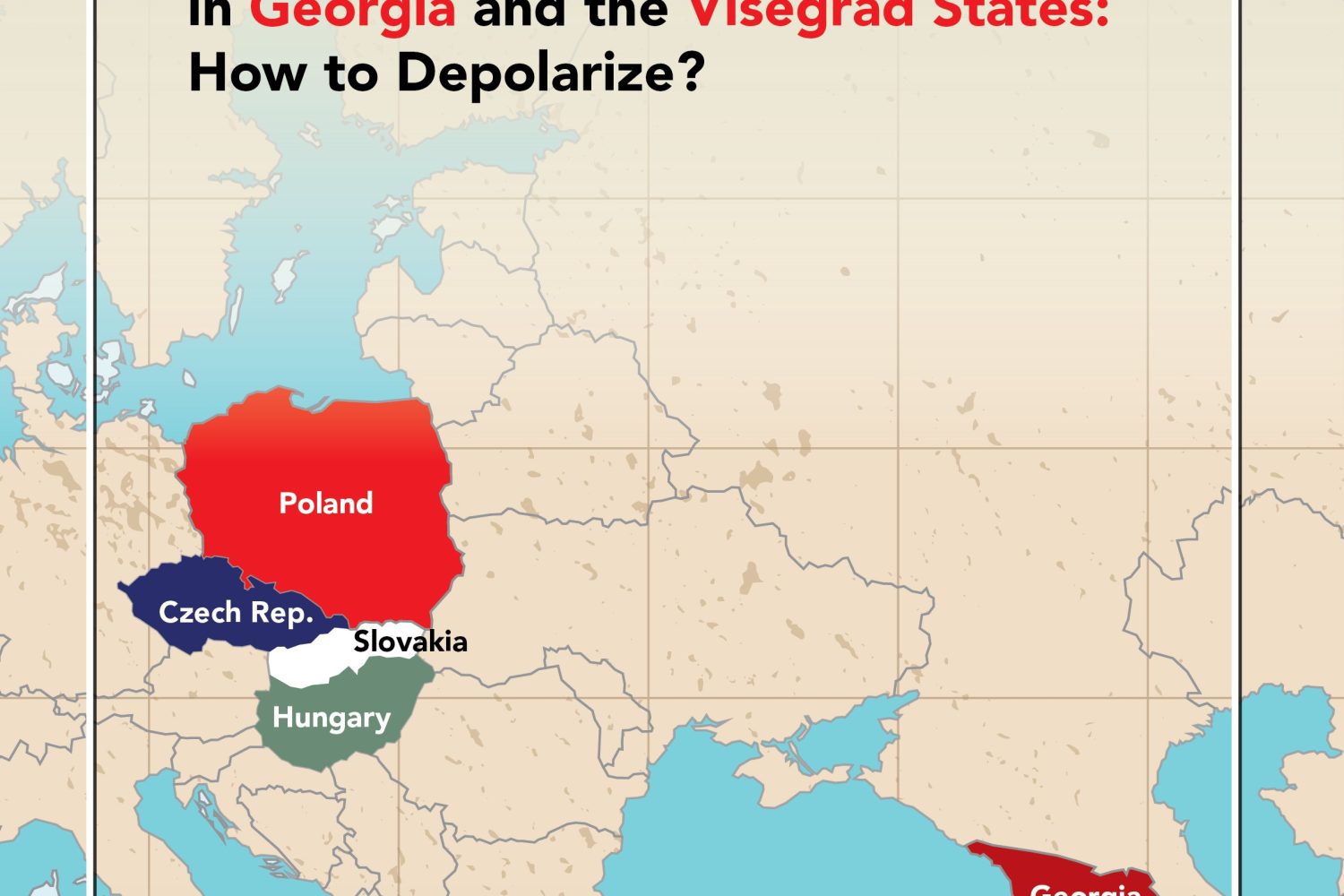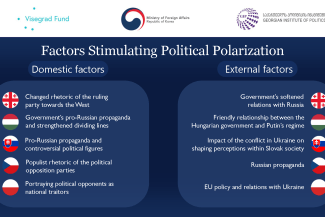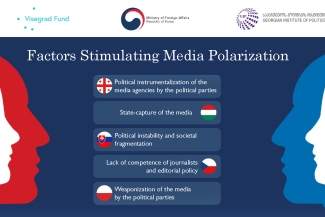2024-06-05 13:00:40
The report examines the domestic and external causes of political polarization in Georgia and the Visegrad Four (V4) states Hungary, Slovakia, Czechia, and Poland. It also analyses the major factors stimulating media polarization, as well as the consequences of political polarization and its impact on democracy. The report also includes suggested solutions for decreasing media polarization and ensuring that the electorate makes informed decisions.
Several data collection methods were employed in the production of this report. Firstly, existing literature and reports were surveyed, including indices of media freedom, democracy and polarization, as well as public opinion poll results. Secondly, media experts and editors were interviewed, and, finally, there were surveyed experts and journalists in Georgia and V4 states.
The findings from the study indicate common trends in terms of the level and roots of polarization in Georgia, Hungary, and Poland. Slightly different trends were captured in the case of Slovakia and especially in Czechia. In particular, while media polarization is mainly caused by the political instrumentalization of media agencies by political parties and by state capture of media in Georgia, Hungary and Poland, the “societal fragmentation” and “fragile political landscape in the country” are named as the most acute issues in Slovakia. In the case of Czechia, the main causal factor was found to be “editorial policy” and “lack of competence of journalists.” However, in the case of all five countries, it was revealed that since Russia invaded Ukraine in 2022, foreign policy and relations with Russia have become the main factors of both political polarization and resulting media polarization. This is reflected both in the rhetoric of politicians and Russia’s powerful propaganda in these states, which has significantly increased the level of polarization and societal tension.
Given the key role of the media in political polarization, the results of the expert survey conducted for this report suggest that Western donors should prioritize making the media landscape more independent in order to liberate media outlets from dependency on political funding. The experts believe that if the public sees that the media is not engaged in political propaganda, the media will gain more trust which they do not have nowadays and they will be able to make informed choices based on objective reporting.
Keywords: Polarization, Media, Georgia, and V4 states, democratic backsliding, media freedom, disinformation
Report | May, 2024
Salome Kandelaki, István Hegedűs, Erik Uszkiewicz, Ján Cingel, Petra Bošková, Miloš Gregor, Katarzyna Chimiak, “Media Polarization Turbulences in Georgia and the Visegrad States: How to Depolarize?,” Report, May 2024.
The report has been developed under the framework of the project “Supporting Decrease of Media Polarization in Georgia and V4 States” co-financed by the Governments of Czechia, Hungary, Poland, and Slovakia through Visegrad Grants from the International Visegrad Fund. It is also co-funded by the Ministry of Foreign Affairs of the Republic of Korea. The mission of the fund is to advance ideas for sustainable regional cooperation in Central Europe.
The Report was implemented in partnership with Strategic Analysis Think Tank; Hungarian Europe Society; Institute of Public Affairs (IPA) Instytut Spraw Publicznych; Masaryk University.






